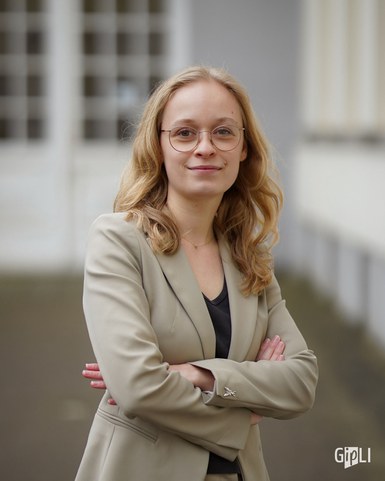Paulien Wymeersch

After starting her career as an academic assistant at Ghent University, Paulien obtained external funding from FWO for her PhD project entitled “Ownership of AI and AI-output”. She has presented her research findings on various occasions, including at seminars organized by the Belgian Enterprise Courts in Ghent and Antwerp and at the annual conference of the Association for Law, Property and Society (ALPS) in Southampton, UK. Paulien has published in the fields of property law and intellectual property law, with a focus on copyright law and its relationship to artificial intelligence.
Apart from being a GIPLI affiliate, Paulien is a full-time member of the Ghent University Center for Law of Obligations and Property.
Her PhD research
Ownership of AI and AI Output
AI systems are playing an increasing role in society, but have also given rise to several practical problems, such as producing output (e.g. realistic images, artworks, poems) or causing damages. Accordingly, AI systems are challenging established legal doctrine and raising policy questions. This research poses the central research question on who owns AI and AI output.
First, the question will be considered whether AI systems can be legally qualified as goods in the sense of property law, which is challenged by AI systems’ complex and immaterial nature. At the same time, AI systems might be protected by intellectual property rights, namely copyright and patent law, while the relationship between these two classifications is not clear. Second, since AI systems are engaging questions on (non-)contractual liability issues, it will be discussed whether legal personhood should be attributed to AI. Third, it will be examined whether copyright and patent law applies to output produced by means of AI systems. The innovative character of the project lies in combining different legal branches by examining interrelated questions together.
Paulien Wymeersch' research is financed by FWO Research Foundation Flanders and supervised by Prof. Dr. Joke Baeck (supervisor) and Prof. Dr. Annelies Wylleman (co-supervisor). It runs from November 2023 to October 2027.